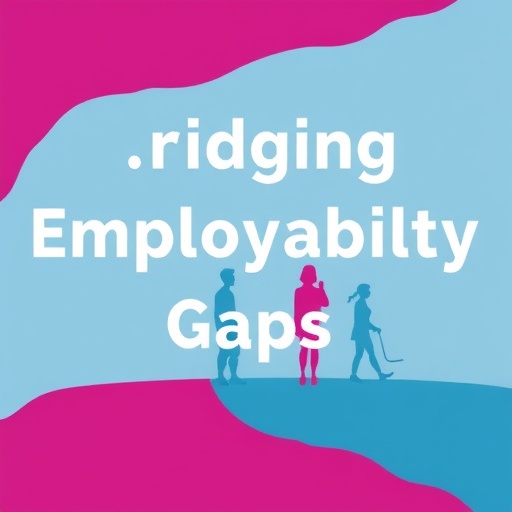In a world increasingly driven by rapid technological advancements and evolving employment landscapes, the focus on employability skills has never been more critical. A recent study conducted by a team of researchers, including Adam, M., Yalley, C.E., and Poatob, S., delves into the employability skills gaps among Bachelor of Arts social studies education students at the University of Education, Winneba. The findings of this analysis not only shed light on the challenges faced by these students but also emphasize the need for educational institutions to adapt to the changing demands of the job market.
The study first establishes the context of employability within the realm of social studies education. It outlines the key skills that are increasingly sought after by employers in diverse fields, including critical thinking, communication, and problem-solving abilities. These skills are not merely academic; they are essential for students to navigate the complexities of the modern workforce. The research identifies a specific set of skills that students believe are critical for their future success yet feel inadequately prepared to demonstrate.
One notable aspect of this study is its rigorous methodology, which incorporates both qualitative and quantitative research techniques. Surveys were distributed among social studies education students, enabling the researchers to gather substantial data on students’ self-assessed competencies in various employability skills. Focus group discussions further enriched the findings, providing deeper insights into students’ perceptions of their educational experiences. This mixed-methods approach ensures a robust analysis of the skills gaps identified.
Moreover, the researchers categorized the identified skills gaps into three primary areas: cognitive, interpersonal, and intrapersonal skills. Cognitive skills encompass analytical thinking and creativity, while interpersonal skills include teamwork, collaboration, and effective communication. Intrapersonal skills focus on self-management, adaptability, and resilience—qualities that are immensely valuable in today’s volatile job market. The findings highlight a pronounced deficiency in students’ confidence levels across these skill sets, raising urgent concerns about their readiness to enter the workforce.
The implications of these gaps are profound. Employers are increasingly expressing dissatisfaction with the preparedness of graduates, citing a lack of essential skills that are pivotal for success in professional environments. This disconnect between educational outcomes and industry expectations underscores a pressing need for reform in curriculum design and pedagogical approaches. Educational institutions, including the University of Education, Winneba, must take these findings seriously to bridge the gap between job market demands and students’ academic preparation.
In response to the study’s conclusions, the researchers propose several strategic interventions aimed at enhancing employability skills among students. One significant recommendation is the integration of experiential learning opportunities, such as internships and co-op placements, into the academic curriculum. These hands-on experiences allow students to apply theoretical knowledge in real-world settings, fostering the development of crucial employability skills.
Additionally, the incorporation of soft skills training into existing programs can make a marked difference. Workshops focusing on communication, teamwork, and conflict resolution could empower students to navigate interpersonal dynamics effectively within workplace environments. Such training not only enhances individual competencies but also cultivates a collaborative spirit essential for thriving in diverse professional settings.
The research also addresses the vital role of faculty in bridging the employability skills gap. Instructors are encouraged to adopt pedagogical strategies that challenge students to develop higher-order thinking skills. Incorporating project-based learning and encouraging active participation in discussions can help students feel more engaged and confident in their abilities. Faculty development programs focused on aligning teaching practices with employability outcomes can be instrumental in equipping educators with the necessary tools to foster a skills-oriented learning environment.
Furthermore, the study sheds light on the importance of continuous assessment and feedback mechanisms in educational settings. By regularly evaluating students’ progress in developing employability skills, educators can provide targeted support and interventions tailored to individual needs. This feedback loop not only aids students in recognizing their strengths and weaknesses but also encourages a growth mindset—a crucial component of lifelong learning.
As institutions implement changes based on this research, collaboration with industry stakeholders becomes paramount. Creating partnerships with local businesses and organizations can facilitate the development of programs that are responsive to real-world needs. Such collaborations can extend beyond internships; they may also involve mentorship opportunities, guest lectures, and curriculum co-design, ensuring that educational content remains relevant and aligned with industry trends.
In conclusion, the analysis of employability skills gaps among Bachelor of Arts social studies education students at the University of Education, Winneba, serves as a clarion call for educational reform. The study underscores the necessity of aligning academic programs with the evolving demands of the job market. By fostering an environment that prioritizes experiential learning, soft skills training, and continuous assessment, institutions can empower students to thrive in their future careers, ultimately contributing to a more skilled and competent workforce.
As the job market continues to shift, the responsibility lies not only with students to seek out opportunities for growth but also with educational institutions to ensure that they are adequately prepared for the challenges that lie ahead. The findings of this research can catalyze meaningful changes that bridge the gap between education and employability, thereby enhancing the prospects of future graduates.
Subject of Research: Employability skills gaps among Bachelor of Arts social studies education students.
Article Title: Analysis of employability skills gaps among Bachelor of Arts social studies education students at the University of Education, Winneba.
Article References:
Adam, M., Yalley, C.E. & Poatob, S. Analysis of employability skills gaps among Bachelor of Arts social studies education students at the University of Education, Winneba. Discov glob soc 3, 112 (2025). https://doi.org/10.1007/s44282-025-00248-8
Image Credits: AI Generated
DOI: https://doi.org/10.1007/s44282-025-00248-8
Keywords: employability skills, social studies education, curriculum reform, experiential learning, education and industry collaboration.




